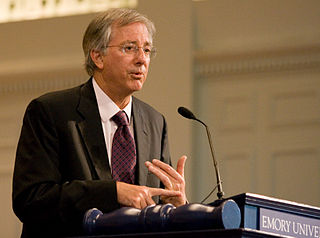A Quote by Bashar al-Assad
There's a difference between responsibility of the policy and responsibility of the practice. In any practice, you have malpractice, that's another issue. When you talk about state and President, you always talk about the decisions and the policy.
Related Quotes
A more appropriate expansion is the statement "it is the responsibility of intellectuals to speak the truth and expose lies" a transcript of a talk to a writers conference in Australia in 1996, where I had been asked to talk on "writers and intellectual responsibility" - a question that I said I found "puzzling," because I knew of nothing to say about it beyond truisms, though these were perhaps worth affirming because they are "so commonly denied, if not in words, then in consistent practice."
When we talk about 'reproductive rights' this is what we mean. It's the difference between people as objects, and people as agents: between regarding people as pawns on the policy chessboard and recognizing them as the players, the decision-makers, the drivers of policy; autonomous individuals intimately concerned with the direction of their own lives. Under these conditions women, especially, enjoy better health and live fuller lives.
Pakistan is, I always feel, hopeful. You know, our system of government is not, and the system of foreign policy whereby we do whatever is asked of us as long as the price is right only proves to fundamentalist outfits and to militant groups that when we talk of things like democracy, when we talk of things like foreign policy, what we're really talking about is being pro-American.
If I can't practice, I can't practice. It is as simple as that. I ain't about that at all. It's easy to sum it up if you're just talking about practice. We're sitting here, and I'm supposed to be the franchise player, and we're talking about practice. I mean listen, we're sitting here talking about practice, not a game, not a game, not a game, but we're talking about practice. Not the game that I go out there and die for and play every game like it's my last, but we're talking about practice man. How silly is that?
In 1977, when I started my first job at the Federal Reserve Board as a staff economist in the Division of International Finance, it was an article of faith in central banking that secrecy about monetary policy decisions was the best policy: Central banks, as a rule, did not discuss these decisions, let alone their future policy intentions.











































